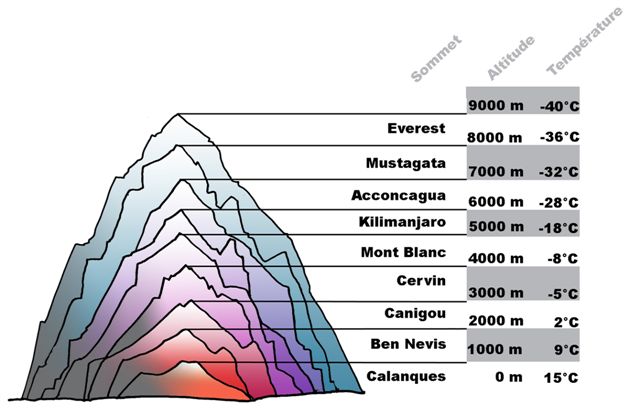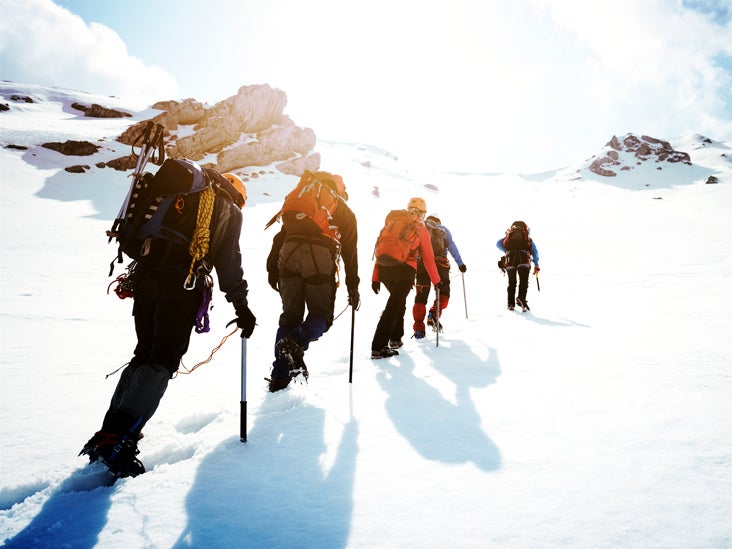
It’s written in your genes, and there’s nothing you can do about that. So if and when it hits, don’t panic, nor wonder how or why it could happen to you. And if you've never had it, it can still strike. It's so unpredictable that even if you've had it once, that doesn't mean you'll have it again. That’s because it’s not ability or experience that dictates whether or not it hits you-it’s whether you have any of the six genes identified as the culprit for causing altitude sickness susceptibility and if you’ve given yourself time to acclimate. Altitude sickness is especially tricky because it is utterly indiscriminate: world-class athletes are just as susceptible to it as mildly out-of-shape weekend warriors. High elevation can cause serious health issues. Cook in New Zealand, and the Teide volcano in Spain. To put that in perspective, that’s about the same elevation as the tops of Mount Fuji in Japan, Mt. If you make your way to the top of our highest destination, Telluride resort’s highest lift, you’ll be at 12,255 feet above sea level. the moment you reach any of InvitedHome's rental destinations the elevation is already 7,000 feet above sea level. Effect of aircraft-cabin altitude on passenger discomfort. discussion/mayo-establishes-high-altitude-and-harsh-environments-medical-clinic/

Mayo establishes high altitude and harsh environments medical clinic. Altitude illness: Risk factors, prevention, presentation, and treatment. my./health/diseases/15111-altitude-sickness You can learn more about how we ensure our content is accurate and current by reading our editorial policy. Healthline has strict sourcing guidelines and relies on peer-reviewed studies, academic research institutions, and medical associations. Possible risk factors for developing altitude sickness from air travel include: Talk to your doctor if you’re concerned and are planning a long flight or traveling to a high altitude However, while general health may not be a risk factor for altitude sickness, high elevations could exacerbate heart or lung conditions. The same study found that women may get it more often than men.Īccording to the Cleveland Clinic, age, sex, and general health do not seem to make a difference in risk for altitude sickness. Results from a 2007 study of 502 participants suggest that people under 60 may be more likely to get altitude sickness on airplanes than older individuals. Drinking alcohol or caffeinated beverages before and during your flight can also increase your chances of experiencing symptoms.Īge may also have a slight effect on your risk.

You may be more likely to get altitude sickness on flights if you’re dehydrated. Who’s at increased risk for altitude sickness from flying? Read on to learn more about altitude sickness and air travel. However, not everyone who mountain climbs, hikes, or flies gets this condition. Age, general health, and physical condition do not affect your chances for altitude sickness. The oxygen level is comparable to levels found in elevations of 5,000 to 9,000 feet.īoth men and women can get altitude sickness. The cabin air pressure in an airplane is adjusted to compensate for these high altitudes.

High altitude begins at around 8,000 feet.Īirplanes fly at very high altitudes of up to 30,000 to 45,000 feet. The mildest form of altitude sickness (acute mountain sickness) can occur from flying.Īltitude sickness (mountain sickness) occurs if you increase your elevation quickly without having time to adjust to the lowered oxygen and air pressure found at high altitudes. Altitude sickness (mountain sickness) is associated with mountain climbing and with being in high-elevation locations such as Mt.


 0 kommentar(er)
0 kommentar(er)
